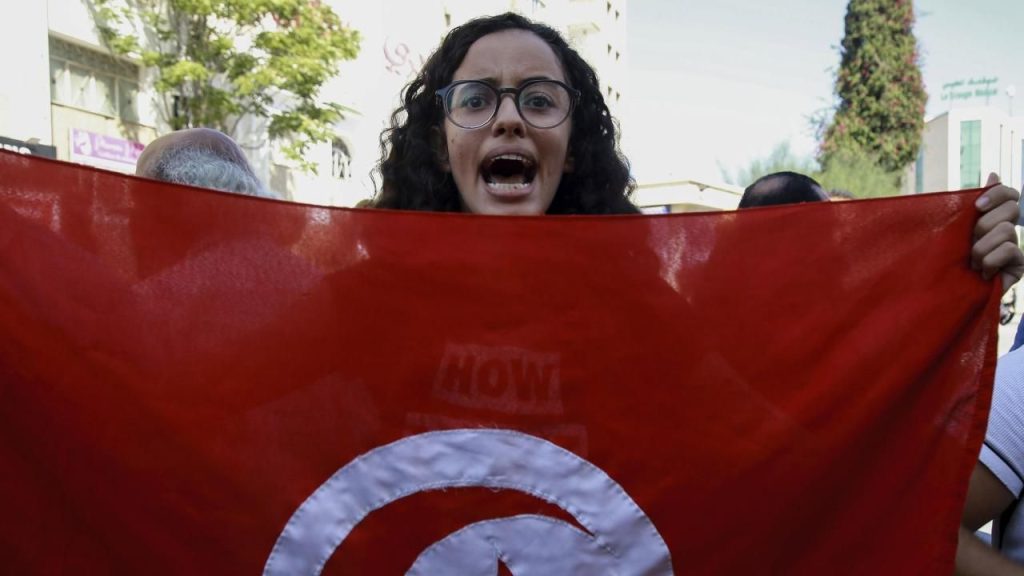Tunisia’s New Law Limits Judicial Oversight of Election Authority
3 min read

On Friday, Tunisia’s parliament passed a controversial law that diminishes the power of the courts over the election authority, just nine days ahead of the presidential election. The Independent High Authority for Elections (ISIE), whose members are appointed by President Kais Saied, has faced criticism and scrutiny as tensions rise between it and the judicial system.
The decision to amend the election law was supported by a majority of parliamentary members, even as the ISIE remains embroiled in a dispute with the courts regarding the exclusion of three candidates from the upcoming ballot. Opposition parties and civil society organizations expressed their outrage over the law, alleging that it is part of a coordinated effort by President Saied to minimize competition for his re-election.
Protests erupted outside the parliament building as demonstrators gathered to voice their dissent against the newly passed law. Many view it as a significant blow to Tunisia’s young democracy, which has struggled to maintain its democratic principles since the Arab Spring revolution that unseated longtime dictator Zine El Abidine Ben Ali over a decade ago.
In the lead-up to this year’s election, the ISIE’s credibility has come under scrutiny after it dismissed a judicial ruling that mandated the reinstatement of three potential challengers—Monther Zenaidi, Abdellatif Mekki, and Imed Daimi—who were excluded from the ballot on grounds of incomplete campaign filings. The decision to exclude these candidates has raised concerns about the fairness of the electoral process, particularly as several other candidates have faced arrests or disqualifications.
Prior to the parliamentary vote, some members accused the courts of bias, suggesting that judges were influenced by foreign interests. This rhetoric echoes Saied’s long-standing narrative, portraying his adversaries as tools of external forces. Zina Jiballah, an independent MP, claimed that certain political factions operate under directives from abroad, suggesting that the judiciary lacks impartiality in its dealings.
Critics have accused Saied, a populist leader who won his first term in 2019, of undermining democratic institutions in his quest for power. Throughout his presidency, he has often labeled civil society and opposition voices as adversaries with ulterior motives, framing them as puppets of foreign governments. During the parliamentary debate, Sonia Benmabrouk from the Hope and Work Party emphasized, “History will remember that we are not sellers of countries and that Tunisia was saved by honest men and women.”
As the electoral campaign progresses, Saied is seeking a second term amid a backdrop of political turmoil. His main competitors—businessman Ayachi Zammel and Zouhair Maghzaoui, a member of parliament previously supportive of Saied—are relatively unknown figures. Zammel is currently imprisoned on election fraud charges, a situation that has raised eyebrows given the broader context of Saied’s crackdown on dissent.
The forthcoming election has been marred by allegations of unfair practices, with many viewing the ISIE’s actions as aligned with Saied’s objectives to consolidate power. The opposition and civil society groups have rallied to highlight these issues, arguing that the integrity of the electoral process is at stake.
As Tunisia navigates this critical moment in its political landscape, the implications of the recent law may reverberate far beyond the immediate election. The conflict between the judiciary and the ISIE raises questions about the future of democratic governance in Tunisia and the resilience of its institutions. Many fear that the changes may set a precedent for further erosion of judicial independence and civil liberties, casting a shadow over the nation’s aspirations for a thriving democracy.
With just days to go before the election, the tension surrounding these developments is palpable, and the outcome will likely have lasting repercussions for the country’s political trajectory. As citizens prepare to head to the polls, the fate of Tunisia’s democracy hangs in the balance.